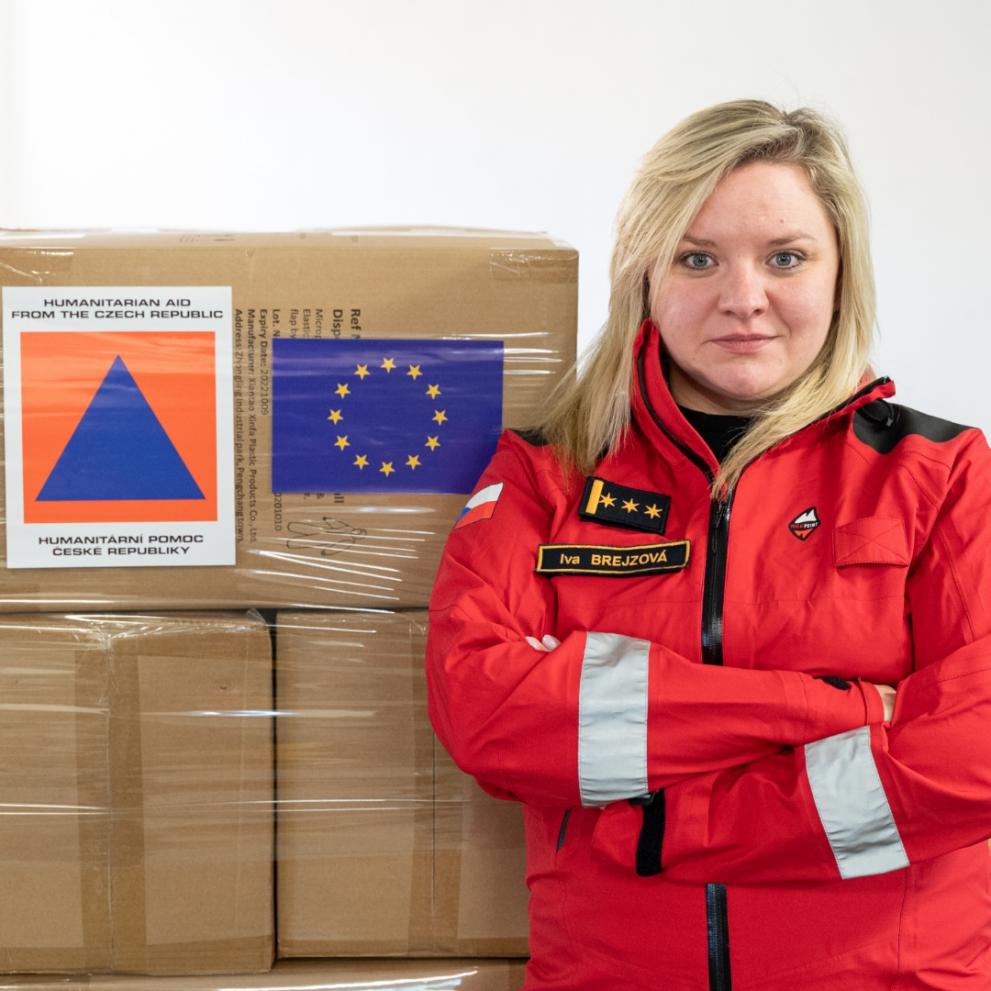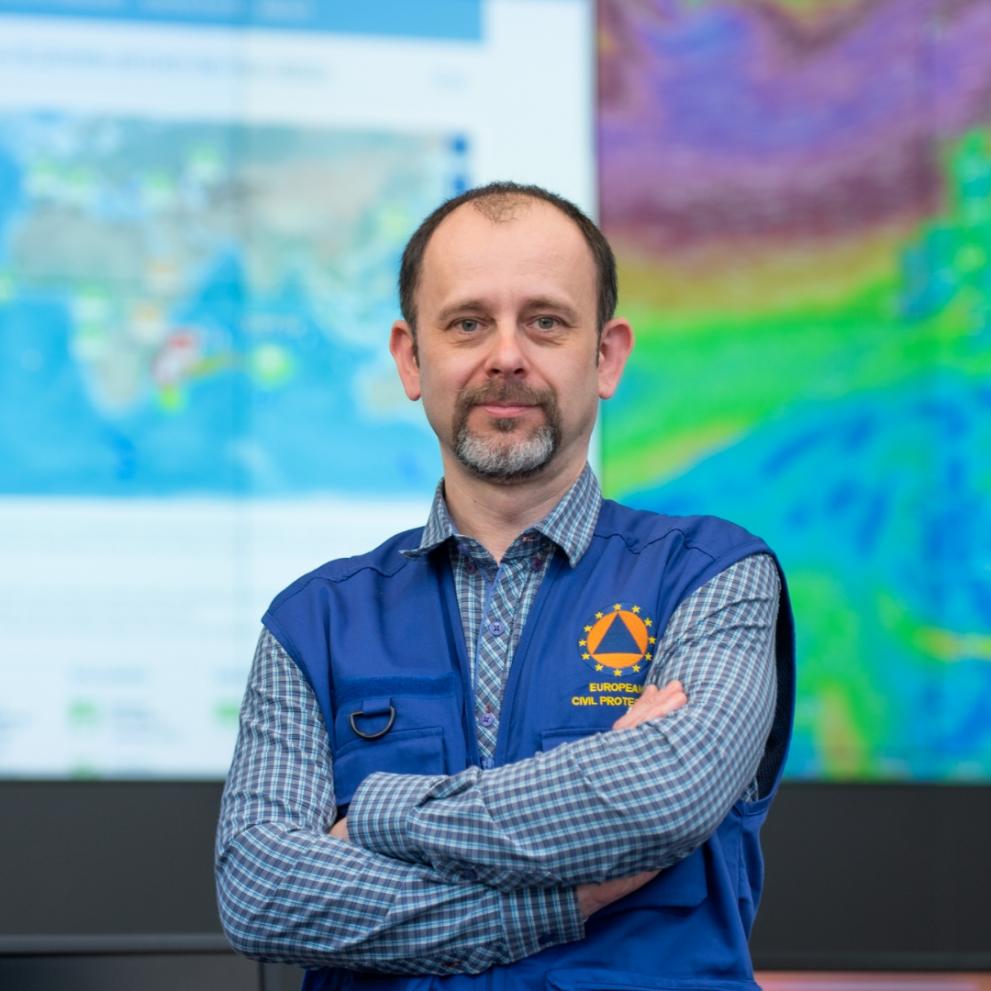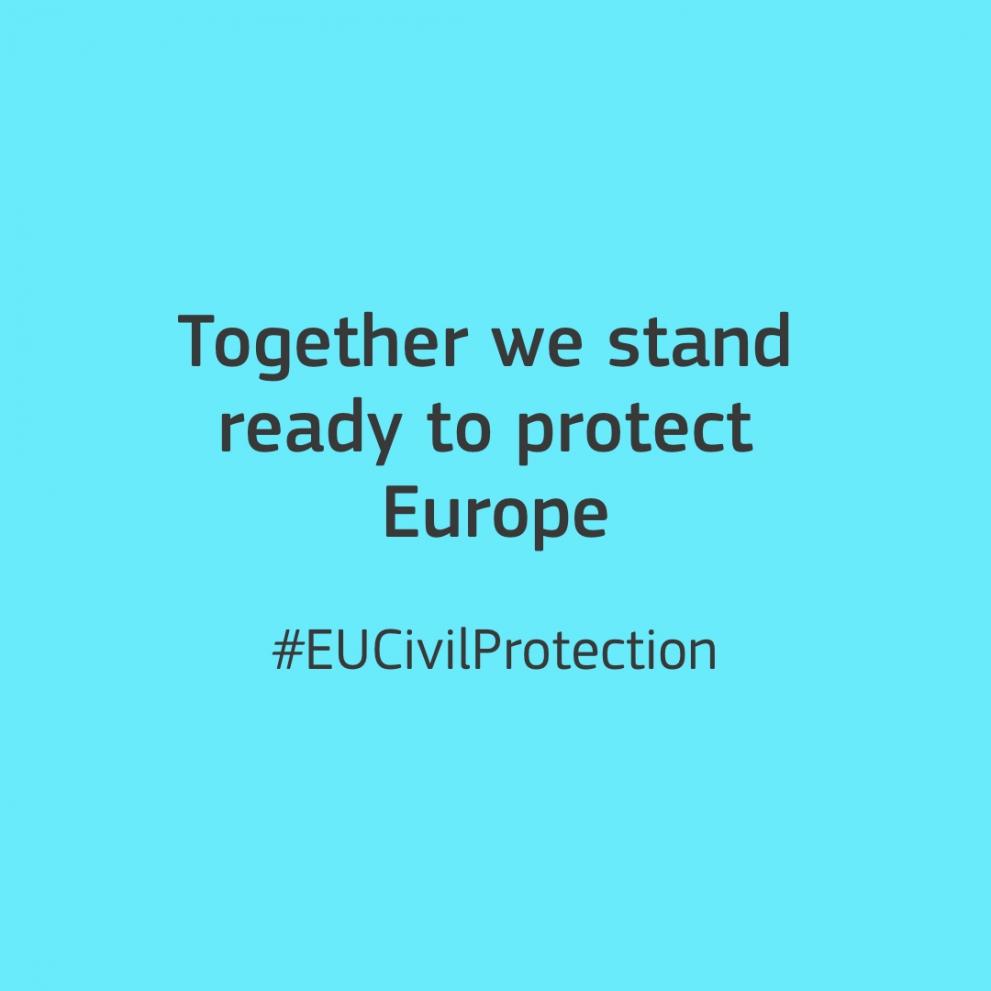At the height of the COVID-19 pandemic, North Macedonia was facing a serious lack of personal protective equipment. The EU’s Emergency Response Coordination Centre organised assistance from across Europe. In turn, the Czech Republic responded by sending supplies from its own stock.

The COVID-19 pandemic was about to enter its second year when North Macedonia found itself in desperate need of personal protective equipment.
When the country asked the Emergency Response Coordination Centre (ERCC) for help, the Czech Republic was the one to respond. The ERCC coordinates the delivery of assistance from 27 EU countries and 6 other participating states, as part of the EU Civil Protection Mechanism, to countries affected by crises such as medical emergencies and natural hazards.
This time, support came from the Czech Republic, which, in January 2021, delivered 108,000 surgical masks and 18,000 FFP2 masks, along with 5,000 protective overalls.
“In 2021, the personal protective equipment was already in stock in the Czech Republic,” says Iva Brejzova, head of the humanitarian aid department within the country’s civil protection authority.
“When the request from North Macedonia was received, we were able to send them some of this equipment.”
This was not the first time the Czech Republic had supported other countries through the EU Civil Protection Mechanism, under the ERCC’s coordination.
In 2020, the country provided personal protective equipment against COVID-19 to Ukraine, France, and Armenia, and sent medical equipment to Lebanon in response to the Beirut port explosion. This is partly why, Brejzova says, the 2021 operation went very smoothly.
“We had provided assistance to other countries affected by the COVID-19 pandemic,” she explains. “We knew what main steps needed to be taken.”
A well-established mechanism

North Macedonia received support on several occasions through the EU Civil Protection Mechanism.
The country’s first request for personal protective equipment was originally filed with the ERCC in March 2020 and was regularly updated after that.
The EU Civil Protection officer Roman Francl took part in the coordination of the delivery of assistance throughout this period.
“The EU Civil Protection Mechanism is well established and very well known around the world,” says Francl, who worked as a fire fighter in the Czech Republic for 20 years before moving to Brussels as a national expert seconded to the European Commission.
“We can see it from the number of countries that come directly back to us requesting assistance.”
Francl is particularly proud of the work that the ERCC does to coordinate the delivery of assistance, but also in stepping in directly when countries are not able to respond.
“In North Macedonia’s case, which remained open for 21 months, I was involved in the activation of the rescEU medical stockpile, which is hosted by several EU countries,” he recalls.
The Czech Republic was quick to help North Macedonia, but the process involved some challenges, which were mainly related to transportation.
“We decided to pass only through EU countries,” Brejzova says. “We had to cross Slovakia, Hungary, Romania, and Bulgaria to avoid customs procedures.”
Developing a better system

Despite the issues encountered during the operation, Brejzova is pleased about the work they did, which wouldn’t have been possible without the EU's support.
“Especially at the beginning of the pandemic, there was a lack of protective equipment and other medical supplies across the EU,” she explains. “Thanks to the EU Civil Protection Mechanism, we were able to have a good overview of who was helping whom, so that we could fulfil – in part or entirely – requests from countries that had received less or had not received anything.”
Brejzova says that everyone involved in the process acquired new knowledge and expertise that will be very useful in future medical emergencies.
“We were running many operations at once and sometimes it was hard to coordinate them all, but I think that we have developed an even better system and learned a lot during the COVID-19 crisis.”
